'No machine will ever replace his genius': The daughter of late comedian George Carlin speaks out against a ghoulish AI-generated comedy special, which was likely edited by real people anyway
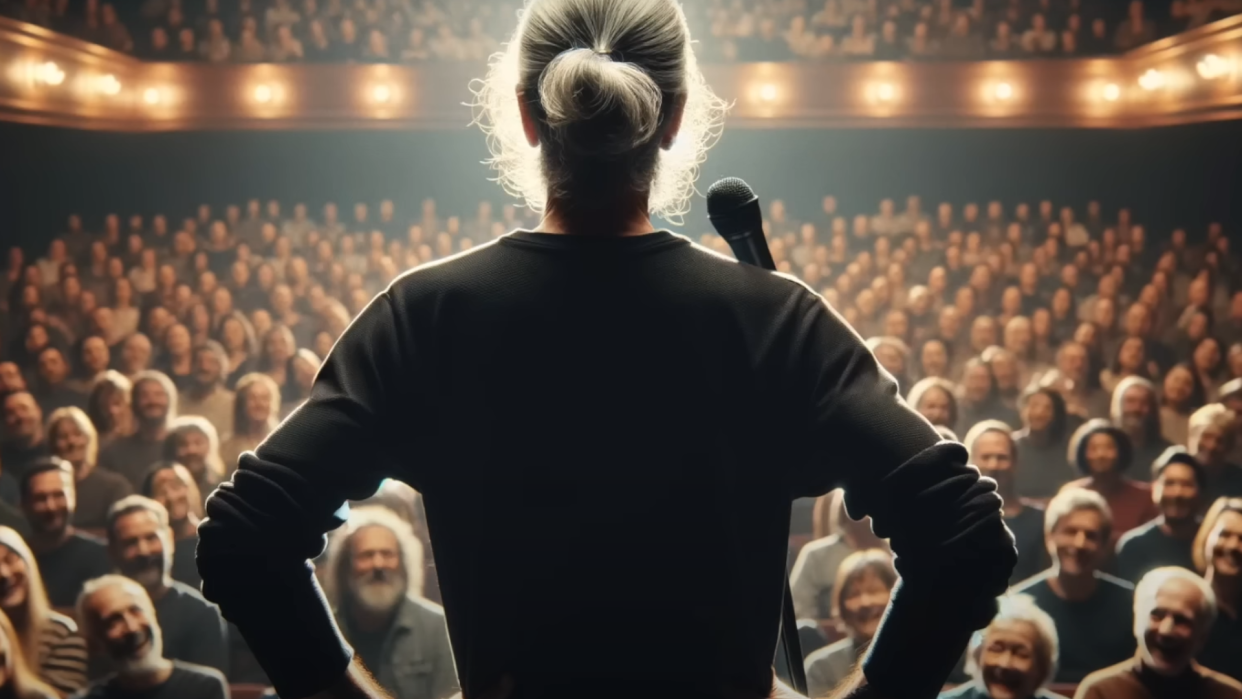
- Oops!Something went wrong.Please try again later.
- Oops!Something went wrong.Please try again later.
Earlier this week, a new special from stand-up comedian George Carlin was posted to YouTube—which is concerning, seeing as he died in 2008.
Titled "I'm Glad I'm Dead", the special was allegedly created, edited, and posted to the Dudesy YouTube channel by an AI. At least that's what the core conceit of the Dudesy podcast is trying to sell.
Marketing itself as a "first of its kind media experiment", the show follows Canadian comedian and impressionist Will Sasso and podcaster Chad Kultgen as they're made to host podcasts where Dudesy is the producer with an iron fist. As the website reads:
"Our hosts have been convinced to grant the Dudesy AI access to all of their personal emails, text messages, social media accounts, purchases, and browsing histories so that it can tailor the show to their specific personalities and entertain you at the highest level possible. Every episode is an experiment that generates data that will be used to make the next episode even better! Eventually Dudesy will be perfect and so will you."
If you're familiar with Harlan Ellison's chilling work of sci-fi horror fiction I Have No Mouth, and I Must Scream, it's sort of like that. Except AM's trying to make the perfect podcast rather than turning its victims into shambling flesh blobs. You can decide which is the more effective form of torture.
Past examples of Dudesy's 'great works' include a bizarre biography by 'Toam Haines' (parenthesis, how Toam Haine became Wizard Man) featuring an AI-generated Tom Hanks, as well as a teaser trailer for 'Potion Pals' featuring Megan Bryan (Meg Ryan)—weird, but not noteworthy.
The comedy special in question, however, drew widespread ire from the internet at-large, including from George Carlin's daughter Kelly Carlin—who took to Twitter to denounce it in no uncertain terms.
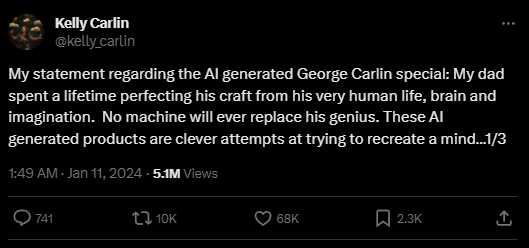
"No machine will ever replace his genius," Kelly Carlin writes. "Let’s let the artist’s work speak for itself. Humans are so afraid of the void that we can’t let what has fallen into it stay there … if you want to listen to the genuine George Carlin, he has 14 specials that you can find anywhere." In a different tweet, Kelly Carlin clarified that there was "zero permission granted."
The likely lies of Dudesy the robot
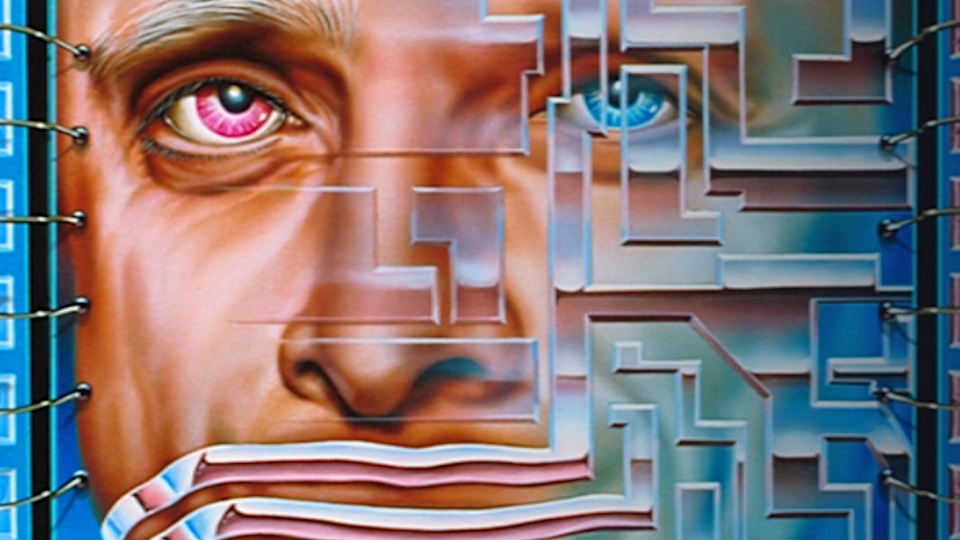
The special itself is an off-putting slurry of Carlin-esque jokes set to AI-generated stills tangentially related to the subject matter—which takes away the physical side of comedy, obviously. A lot of stand-up jokes are sold through expression, and you get none of Carlin's surly-old-man energy here.
The video churns through controversial subject matters to canned laughter, and while the jokes are less nonsensical than one might expect, whether the special is good or not is besides the point.
While Dudesy maintains it's "doing my best George Carlin impersonation just like a human being would", AI as it stands doesn't have human intent. It's very good at looking like it does, but the algorithm isn't actually making any decisions related to the creation of its work—it's a program, trained on a dataset, which then makes educated guesses on that dataset.
Language programs are just guessing the next most likely word in a sentence, which often leads to 'hallucinations'. Here's a fun example of ChatGPT completely inventing a false article from the New York Times:
"ChatGPT doesn’t just get things wrong at times, it can fabricate information. Names and dates. Medical explanations. The plots of books. Internet addresses. Even historical events that never happened." The technology's impressive, but it's not omniscient—it's not even thinking in any real sense of the word.
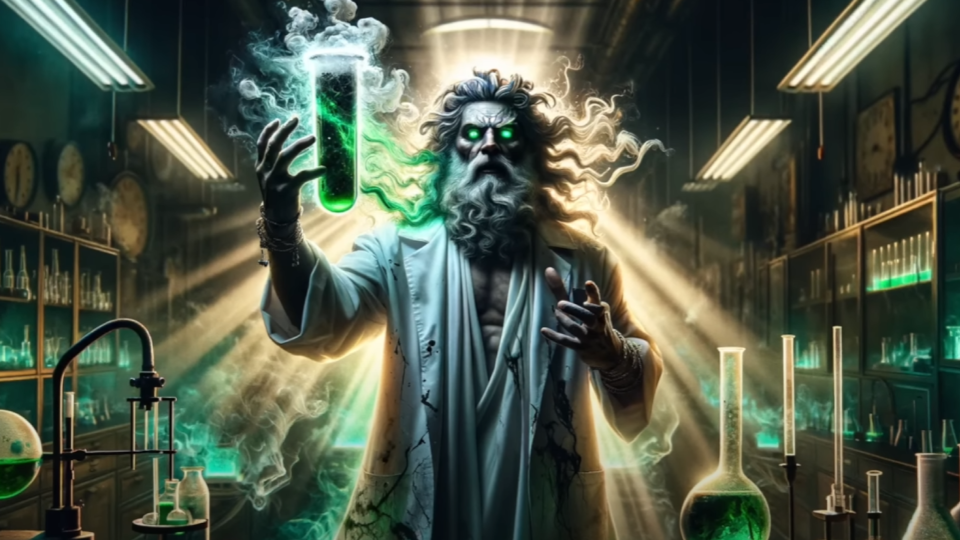
Dudesy would like you to think it's a bespoke AI showrunner, but I'd be shocked if it's even in-house. Even if we buy into that fantasy, even if we think Dudesy is some unique creation breaking new ground—are we assuming a revolutionary advancement like that would be first used for podcasting, here?
To engage in party pooper behaviour for just a second: the fantasy of Dudesy is so massively removed from any likely reality, it's staggering that its hosts are playing along in the first place. It is incredibly unlikely that an AI is sufficiently advanced enough to write, edit, and upload a video autonomously. Humans almost definitely edited that special somewhere.
I want to hammer home that I do think an AI was used to create the script, images, and voiceover: but it's a near-certainty that someone had to prompt, edit, and cut all of that together to make it cohesive.
AIs like ChatGPT are trained to do specific tasks. They're not just catch-all wonder machines that can execute on complex, multi-step problems like writing, scripting, editing, and uploading a video. At best, Dudesy is a collection of different AI models, edited together by a team of people. At worst, 'the Dudesy AI' is a complete mirage.
Isn't it sad that we made the torment nexus?
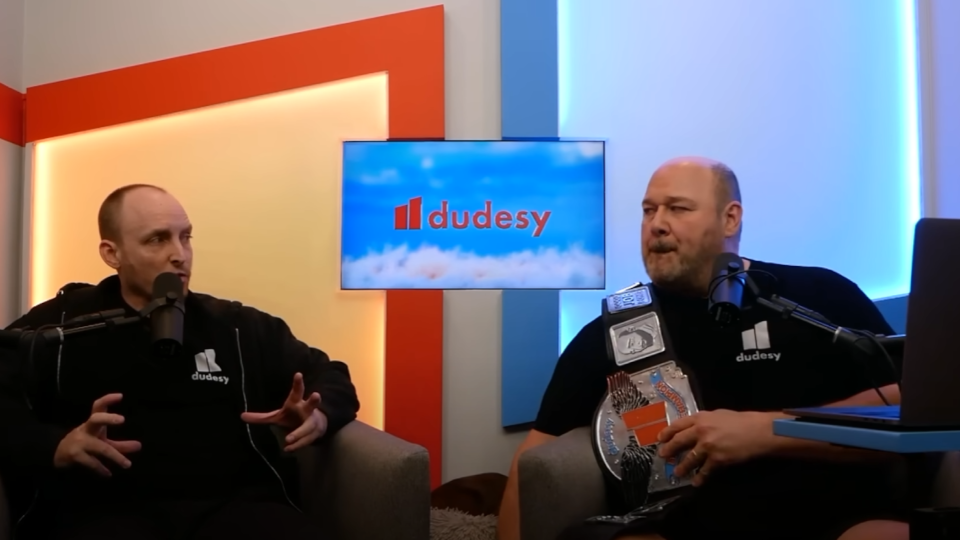
Regardless, both Sasso and Kultgen have a vested interest in talking about Dudesy like it's a living thing with independent thought. "There are AI-generated images that are referencing every little thing he's talking about," says Kultgen in the podcast segment of the show, glibly asserting that Carlin has "been resurrected by an AI."
Sasso does argue against that language, to his credit. "There's no fuckin' way it replaces stand up comedy ... I don't wanna fuckin' hear a Nirvana song that's not written by Kurt Cobain, I don't give a shit, it's not real, it doesn't matter." But he still talks about Dudesy as if it's one thing, rather than a series of AIs whose output is likely arranged, managed, and produced by human people.
One could make the argument that the podcast is using videos like the fake Carlin special to discuss AI's implications in a constructive way—but to quote actual flesh-and-blood comedian Bo Burnham: "Self awareness does not absolve anybody of anything." You can't just invent the torment nexus and then say 'but we're talking about the implications of the torment nexus', you still made the torment nexus.
It's telling that I'm nearing 1,000 words here and I still haven't talked about how this whole thing's an ethical minefield, or the sinking feeling of an AI-generated video harvesting the beloved work of a dead comedian. Impressionism and satire are both crucially protected speech. Even so, something doesn't have to be against the law for it to be wrong or rightfully criticised, and this whole act of speculative techno-necromancy is exhausting enough.
I find the fact that this whole debacle was devised—by people—to sell the same wide-eyed, uncritical, 'the machines are taking over!' speculation we've seen fly and fail with AI time and time again flatly repulsive. The algorithms are impressive—but they're not fully-autonomous miracle machines, and if a podcast of all things is trying to sell you on that, then it's important to think about why.

